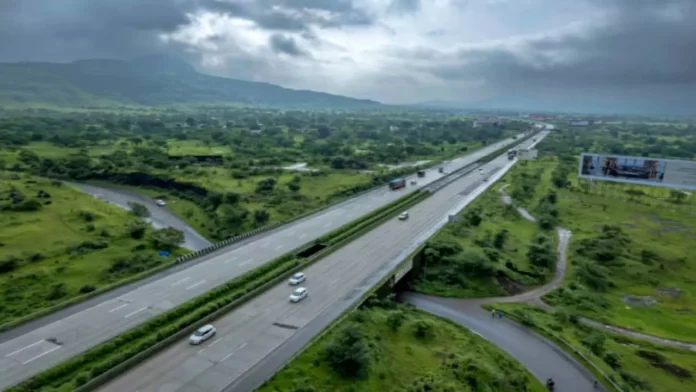Union Minister for Road Transport and Highways, Nitin Gadkari, has called for the rapid acceleration of highway projects in Assam, signaling a renewed focus on infrastructure development in the Northeastern region. During his recent visit to the state in October 2024, Gadkari emphasized the importance of completing these critical projects in a time-bound manner, highlighting how they could transform Assam’s economic landscape and improve connectivity not only within the state but across the entire Northeastern region.
Focus on Strategic Connectivity
Assam, being a gateway to the Northeast, plays a pivotal role in India’s connectivity with its neighboring states and countries like Bhutan, Bangladesh, and Myanmar. Gadkari reiterated that robust highway infrastructure is key to unlocking the region’s full potential. He outlined plans for expediting the construction of several National Highways and enhancing Assam’s road network to ensure smoother, faster, and safer transportation for both goods and people.
“The highway projects in Assam are not just about better roads but about empowering the state to become an economic powerhouse in the Northeast,” Gadkari said during a press briefing. He also noted that these projects would improve trade, tourism, and industrialization in the state, thus providing employment opportunities and boosting the local economy.
Key Projects Underway
Gadkari reviewed several ongoing highway projects in Assam, including the expansion of National Highway 37 (NH-37), which runs parallel to the Brahmaputra River and connects key towns across the state. The development of this highway is crucial as it serves as one of the major arterial roads for Assam, connecting Guwahati to Dibrugarh, Jorhat, and Tinsukia, along with several industrial hubs and tea-growing regions.
Other significant projects include the four-laning of the East-West Corridor, improving connectivity between Assam and neighboring states like Nagaland, Meghalaya, and Arunachal Pradesh. This project is expected to facilitate smoother transportation for goods and services, particularly for the tea, oil, and tourism sectors, which are vital to Assam’s economy.
Gadkari also discussed the progress of the ambitious Dhola-Sadiya Bridge, which is India’s longest bridge, and how its further integration with other road networks will strengthen trade routes to Arunachal Pradesh and create better access to border areas, enhancing national security.
Challenges and Solutions
While the minister praised the progress on some projects, he expressed concern over the delays in others. Land acquisition, environmental clearances, and local opposition have been persistent bottlenecks in some areas. Gadkari emphasized the need for cooperation between the state and central governments to resolve these issues swiftly.
To expedite the projects, Gadkari proposed using advanced technology, including the deployment of drones for land surveys and monitoring project progress. He also highlighted the need to fast-track environmental clearances without compromising on sustainability. “We must balance development with environmental preservation. Green infrastructure is our priority, and we will ensure that our projects adhere to sustainable practices,” he added.
The minister encouraged contractors to adopt modern construction techniques to reduce costs and timelines. “Time is money, and delays in infrastructure projects not only inflate costs but also hold back the benefits from reaching the people. We are committed to ensuring timely completion,” he asserted.
Economic and Social Benefits
The completion of these highway projects is expected to bring significant economic and social benefits to Assam and the broader Northeastern region. Enhanced road infrastructure will reduce travel time, lower logistics costs, and make transportation more reliable. This is particularly important for Assam’s agriculture sector, where farmers often face difficulties in transporting perishable goods like fruits, vegetables, and fish due to poor road conditions.
Better roads will also stimulate tourism, a sector with tremendous untapped potential in Assam. The state’s rich cultural heritage, national parks, and scenic landscapes make it a prime destination for tourists. Improved connectivity to key locations such as Kaziranga National Park and Majuli, the world’s largest river island, will attract more visitors, boosting the hospitality and service industries.
In addition to economic growth, the improved road network will enhance access to healthcare and education in rural and remote areas. Many regions in Assam are difficult to access, particularly during the monsoon season when roads are frequently damaged. By accelerating highway construction, the government aims to improve mobility for citizens and ensure that essential services reach even the most remote corners of the state.
Union Minister Nitin Gadkari’s call to fast-track highway projects in Assam is a clear indication of the government’s commitment to boosting infrastructure in the Northeast. These projects, once completed, will not only enhance connectivity within Assam but also integrate the state more effectively into the national and regional economy. By addressing bottlenecks and focusing on sustainable development, the government aims to transform Assam into a key player in India’s economic growth story. The highways will serve as lifelines, fostering progress, opportunity, and prosperity for the people of Assam.


